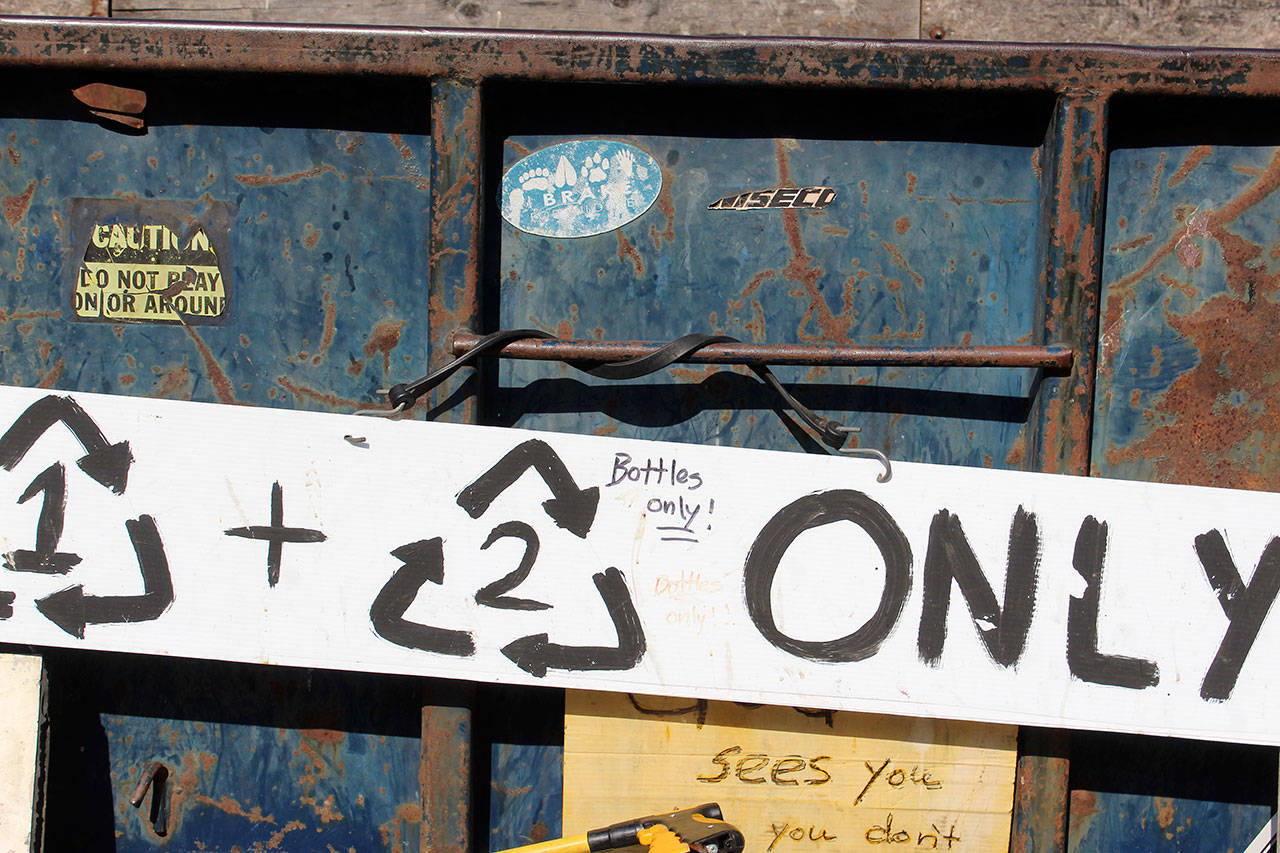Recycling plastic is getting plenty perplexing on Whidbey Island.
Some recycling centers and curbside service still accept many kinds and shapes of plastic containers while others have reduced what will be taken.
The reasons for the uncertainty stretch from regional to international policies that are cracking down on the cleanliness of “recycling streams,” which is leading to more plastic being tossed into landfills.
At Island County solid waste stations, a broad range of plastic containers is still taken.
However, some changes or explanations could be forthcoming.
“Island County has not changed its policy on what recyclables we accept,” Joantha Guthrie, manager of the county solid waste division, said Monday. “We will have more information regarding our recycling program next week.”
Every plastic container or bottle has a recycling symbol. It appears on the bottom of the container as a number from 1 to 7 surrounded by three arrows that form a triangle.
The county accepts plastics with numbers 1 through 7.
Island Recycling in Freeland, a private firm, posted signs stating it only accepts plastic containers stamped with No. 1 or No. 2, which mostly includes clear bottles used for water, juice and soda, as well as opaque milk jugs.
Containers not accepted are displayed under the word “no” painted in red with a big “x” through each one — such as those used for cottage cheese, dishwasher pellets, motor oil and clear take-out “clamshell” containers.
“Plastics have become a hot topic internationally,” Island County Commissioner Helen Price Johnson said. “The collection of plastic types has always been limited here, but I do think it’s narrowed even more recently with global changes.”
To better understand how local recycling is being affected by world export markets, Johnson said Guthrie was invited to speak at the May 23 Council of Governments meeting.
Guthrie told local officials that the county accepts plastic containers, numbered 1 to 7. It has no posted restrictions at its containers for plastic where the public drives in to pitch household items into separate recycling bins.
Guthrie explained that recycling centers across the country are feeling the effect of China’s so-called “Green Fence,” which bans the import of all but the cleanest, most tidily organized bales of reusable rubbish. Like many West Coast states, Washington relied heavily on exporting plastics to China.
Guthrie said the state is working on a campaign to educate the public about the need to clean up items that are bound for recycling centers.



